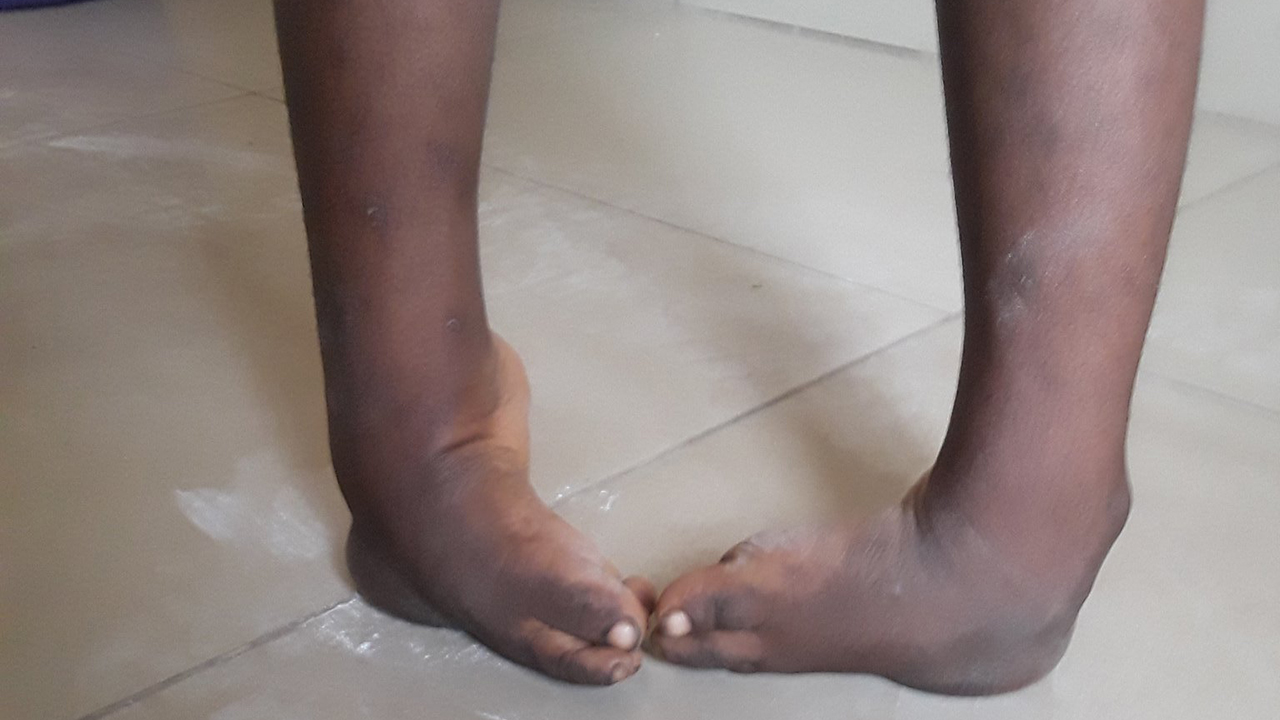
Following President Bola Tinubu’s recall of heads of Nigerian foreign missions in September 2023, the clamour for their replacement has been sustained. Unfortunately, the Presidency has been foot-dragging over alleged indecision and lobbying by political allies. For stakeholders, foreign missions remaining without substantive heads do not bode well for the country’s image and a genuine foreign policy push, BRIDGET CHIEDU ONOCHIE reports.
Recently , the Ministry of Foreign Affairs proposed an annual budget of N353.76 billion for the 2025 fiscal year. While the Headquarters’ share of the fiscal spending is N22.21 billion, the rest was proposed for the funding of departments and agencies under the ministry, as well as, Nigerian missions abroad.
This year’s proposal, if endorsed by the National Assembly, will witness an improvement over that of 2024, which stood at N160.05 billion out of which the Headquarters got N12.96 billion.
While stakeholders sustained clamour for improved funding for the ministry, especially for the running of foreign missions that have greatly been affected by the dwindling fortune of the naira, Nigerians are also worried over the continued delay in naming ambassadors or high commissioners.
President Bola Tinubu had, in September 2023, recalled all career and non-career ambassadors and high commissioners across the world, leaving the missions to be administered by chargé d’affaires, who though seasoned diplomats, are expected to head embassies briefly in the absence of ambassadors.
Among other things, insiders both at the Presidency and the Foreign Affairs Ministry are blaming the delay on pressure mounted on Tinubu, by lobbyists, a situation that has led to replacing one name with another.
But while similar pressure is also being mounted on the Minister of Foreign Affairs, Ambassador Yusuf Maitama Tuggar, by those who perceived him as a crucial stakeholder in the appointment, he quickly came out last year to blame paucity of funds, thereby, attempting to exonerate Tinubu from the allegation of indecision.
As a minister, Tuggar’s responsibility concerning the appointment of heads of missions is limited to the appointment of consuls generals, who head major cities in some countries other than the capital cities, which are headed by ambassadors, or high commissioners.
Some of the cities where Nigeria has established consul-general offices include Shanghai, Guangzhou, and Honk Kong. Others are in Johannesburg (South Africa); Bata (Equatorial Guinea); Buea and Douala (Cameroon); Frankfurt (Germany); Karachi (Pakistan), and Jeddah (Saudi Arabia).
Meanwhile, the permanent missions are established in New York and Atlanta (USA); Geneva (Switzerland), and the United Kingdom where the country has its consular affairs annexed in London.
However, following the appointment of 12 consuls general in April 2024, Nigerians were optimistic that the government was ready to follow up with the naming of ambassadors, and high commissioners. Unfortunately, five new chargé d’affaires were rather named, buttressing the federal government’s non-readiness to appoint substantive heads of missions, and further leaving matters in the realms of speculation.
Nigeria has 109 diplomatic missions worldwide, comprising 76 embassies, 22 high commissions, and 11 consulates. Out of this, 13 are consuls-general and permanent missions, which begin with the attainment of Level 16 for career appointments.
It, therefore, implies that no capital city across the world where Nigeria has a mission is headed by substantive ambassadors, a situation that has been described as “unfortunate” by some diplomats and foreign affairs analysts.
While they admitted that chargés could perform the role of substantive ambassadors to an extent, they, however, maintained that Nigeria cannot be taken seriously, especially by countries that have their ambassadorial representatives in Nigeria.
“President Tinubu canvasses for foreign investment, but Nigerian missions abroad are headed by charge d’affaires. It is not certain how much the delay has caused Nigeria, but one thing I can tell you is that not all governments across the world substitute ambassadors for charge d’affaires.
“Consequently, Nigeria may appear unserious before those countries and they may not be considered for any weighty issue or diplomatic engagements,” said a staff of the Ministry of Foreign Affairs, who pleaded anonymity.
Blaming the delay in ambassadorial appointment partly on the paucity of funds, he admitted that some envoys, who have completed their four-year tour of duty abroad and returned to the country were still being owed their welfare allowances, stressing that it takes the grace of God for a new ambassador to pay the debt owed by his or her predecessor.
On the issue of funding, many have blamed the Central Bank of Nigeria (CBN), and indirectly, the federal government for not taking into consideration, the fact that envoys don’t spend naira outside Nigeria when allocating budget for foreign missions.
Consequently, the high exchange rate not only affects the execution of missions’ duties and the indebtedness of staff but also, the ability of the embassies to perform their obligations towards Nigerian nationals who may run to them for help.
A professor of Political Science and International Relations, at Chrisland University, Abeokuta, Ogun State, Femi Badejo, expressed dismay over President Tinubu’s delay in naming ambassadors and high commissioners for the country’s foreign missions.
According to him, it is either the President “thinks that he can handle the implementation of our foreign policy by his flying around with his minister of this, and ministers for that, or it shows that foreign relations, and foreign policy are not a priority for him.”
On whether Nigeria is losing anything by not having ambassadors and high commissioners at their duty posts, the university teacher said that it was obvious. He wondered why foreign missions should not be headed appropriately as stipulated under the Vienna Convention.
“No doubt, the missions are there, but functioning at less than expected capacity concerning operations efficiency. Chargé d’Affaires are recognised in diplomacy as persons acting in handling business. They are protocol-wise, less than Ambassadors.”
He noted that qualitative representation required ambassadors to be in their offices. While he was not in a position to quantify what the country may have lost by not appointing ambassadors for over a year, Badejo admitted, however, that there are losses when a chargé cannot operate at the same level as sovereign representatives of other countries.
“However, there is no doubt that if decisions to have relationships are worth it, then they should be done at the appropriate levels. There are instances in which a chargé does not have the access that an ambassador would have had in terms of protocols in countries, and countries that have ambassadors in our country expect reciprocity in theirs.”
Considering calls for the reduction of missions over cost implications, Badejo insisted that countries should set their priorities and decide on what would be needed to take care of those priorities. “And if reducing our status at the international level is what our representatives want, I am not in a position to dictate otherwise,” he said.
He also described as “unfortunate,” the fact that Nigeria’s clout in the international system has continued to dwindle. “And if you ask why, the blame will be pushed to previous administrations… But the fact is that any administration that succeeds another must accept responsibilities because before coming on board, they were fully aware of our bad situation before offering to solve our problems.
“Furthermore, we have in place, a government that goes profligate by ballooning ministerial positions with all attendant costs; buying bullet-proof and non-bulletproof SUVs for officials of all arms of government; silent on stealing galore as the EFCC does its abracadabra on us, and a presidency that is purchasing a jet into a Presidential Fleet of so many, when some of the people we are indebted to are using commercial flights. Such a government cannot raise the question of funding; it is a question of looking at what our priorities have been,” he said.
Badejo continued: “Do we have enough money to appoint ambassadors? Of course, it costs a lot to carry out these necessities for being recognised as a functioning sovereign state. A small power country cannot afford to be isolated in the world in which we live.
“Has anyone cared to ask why we were not asked to be part of BRICS in 2010, and why is it today that we actively wanted to become a member country Egypt and Ethiopia were chosen from Africa over us, while we could only get a third class status of BRICS-partner country? We need to wake up, address leadership deficit and corruption at home, and return strongly into the international arena to attract peace and development for improvement in the lives of Nigerians,” the don said.
Also speaking, a retired Nigerian Ambassador to Mexico, OgboleAmedu-Ode, also rued the country’s failure to replace ambassadors and high commissioners that were recalled since late 2023 since government is a continuum even in the area of diplomacy.
“The implication is that where there is supposed to be an interaction at the highest level, we may not be able to sustain it in these missions when we don’t have substantive heads of missions. But I am told that the government has just approved some budget to fund the appointment and deployment of heads of missions.”
To effectively fund the missions for enhanced performance, Amedu-Ode canvassed multiple exchange rates, stressing that to make the execution of Nigeria’s foreign policy strategic, the missions must be adequately funded, and the prevailing exchange rate of naira to the dollar is not in the best interest of foreign missions who operate in hard currencies.
The retired envoy, who recalled that the issue of opening more missions, or reducing existing ones has always resonated with successive governments, urged that the country take a critical look at the role that it wants to play not only in the sub-region, or the continent, but across the globe.
“Who are our competitors there? South Africa. How many missions does South Africa have? How many does Egypt have? We should look at this and decide the role that we want to play and how we want to be reckoned with in the international forum.
“While in service, I went through the anxiety of missions going to be closed or opened. This back-and-forth decision does not go well for us in the international sphere; not good for our image,” he added.
A global affairs analyst, Mr Paul Ejime, held that for a country to leave a footprint or influence policies globally, it must put its best foot forward. “That is the reason it must have envoys or ambassadors, particularly resident ambassadors because they are the ears and eyes of the country through whom it markets itself and sells its policies to the countries where its ambassadors are based. Not having them out there puts the country in a disadvantaged position.
“So, that Nigeria has been without ambassadors in many countries puts it at a disadvantage because in some cases, when strategic meetings are taking place, your country cannot attend, but once your ambassador is there, it is taken that the president attended the meeting. That is why a country’s embassy or chancellery is regarded as a sovereign entity wherever it is located in a foreign land. So, for Nigeria, which is also talking about attracting foreign investments, this puts the country in a very bad shape.
“If a party is campaigning and has all the years to prepare to govern, part of seriousness will mean getting your team, both the cabinet and your ambassadors ready. But to recall ambassadors of a country and not replace them for so many months does not speak well for Nigeria in terms of pursuing his interest and international relations,” Ejime said.






